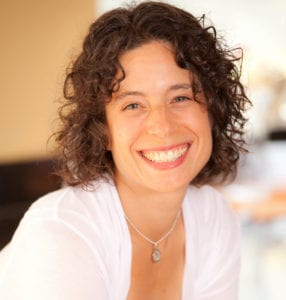PARENTS SHOULD CENTER CHILDREN, NOT PUT THEM IN THE MIDDLE.

Psychologist, Behavioral Institute of Atlanta
Divorce hits children like a death in the family, and parents facing their own loss and anger should recognize their children’s need to grieve. “It’s important to make room for mourning,” says therapist Julie Zeff, who co-leads the Uncoupling support group at Jewish Family & Career Services of Atlanta in Dunwoody. “The kids are going to look to the adults as models for how to process this. It can be really powerful for kids to see the adults in their lives sharing about their full range of feelings.”
Parents should show their children that it’s OK to be upset, angry and open with their feelings, says Tony Levitas, a psychologist who specializes in child, family and divorce issues at The Behavioral Institute of Atlanta in Sandy Springs. “Kids can come away relatively unscathed when the parents act like adults, but when they get nasty, get the kids in the middle and they do the alienating—that’s when it’s really scarring to the kids,” he says.
Children traumatized by divorce can suffer changes in mood, appetite, sleep, academics and behavior. In the long term, studies have found an increased likelihood of anxiety, depression, substance abuse and divorce.

Lawyer, Kessler & Solomiany
One of the best predictors of such problems is the level of conflict between the parents, Levitas says. Some of his child clients dread being at public events with their parents even years after divorce because of the uncontrolled anger.
Parents battling over children are seeking vindication, says Randall Kessler, author of the 2015 book Divorce: Protect Yourself, Your Kids, and Your Future and founding partner in the family law firm Kessler & Solomiany, which has a Sandy Springs location. “If the kids like me and agree with me, that means I’m right. Parents forget that when you criticize the other parent, you’re criticizing the child because the child is 50% mom, 50% dad.”
Levitas offers co-parenting counseling in which couples face each other and describe the space between them, and they use adjectives such as “tense” and “hateful.” That negative space is where their children live, Levitas says, and the parents must work together to protect their children from that bitterness.
Emotionally healthy, mature parents put the children first, he says. He encourages parents to ask, “How are our kids doing? Let’s co-parent them together. They need us to communicate about them.” That means no badmouthing the other parent, no blaming money problems on the ex-spouse, no telling the child to ask the other parent to make expensive purchases and no using children as messengers.
“Keeping the conversation between the parents is really important,” Zeff says. When children are asked to remind a parent about a support check, to pass along a mean comment or to report on the other parent’s dating life, they feel at fault for the conflict.

Co-leader, Uncoupling support group, Jewish Family & Career Services of Atlanta
The ex-couple should create a HEAR note to address the four key coparenting topics and areas of potential conflict, Levitas says: health, education, activities and religious practices.
He recommends weekly communication based on that document. Face-to-face conversations are ideal, but if the acrimony is too high, electronic alternatives such as the OurFamilyWizard app are better than child messengers or silence.
The children might need their own communication outlet, such as a therapist, especially when they send signals such as falling grades and disrupted sleep, Levitas says.
“People are feeling different things at different times, and it’s not a sequential process,” Zeff says, adding that parents should make clear they’re available to hear their children whenever they’re ready to talk.
“There’s no norm for this. This can all look however the family wants to create it,” she says.
Similar flexibility and family decision making apply in determining physical custody. Levitas says the parents should work out the schedule with the children’s input rather than force the children to tell a judge whom they want to live with.
Nothing’s final when it comes to children and divorce, Kessler says. New circumstances can alter custody agreements, and children have a right to declare which parent they’d like to live with when they turn 14.
Children in general may react differently to divorce based on age. Levitas says younger children are more self-centered and so are more likely to blame themselves for the breakup. Older children are better able to communicate their feelings, Zeff says. But Kessler notes that older children face a more difficult transition because they’ve had more time living with two parents.
Many clients delay a divorce until the kids are older, Kessler says, and the kids often ask why they waited so long. “The kids know, and the kids want their parents to be happy.”
“No matter what stage you’re in, keep the best interests of the kids at heart,” Levitas says. “That’s the gold standard.”
UNCOUPLING HELP
The nonprofit Jewish Family & Career Services of Atlanta holds its Uncoupling support group every other Tuesday from 5 to 6:30 p.m. It’s open to anyone considering or going through divorce, as well as those who divorced years ago.
JF&CS
4549 Chamblee-Dunwoody Road
Dunwoody 30338
770.677.9474
jfcsatl.org/clinical
Behavioral Institute of Atlanta
6000 Lake Forrest Drive, Suite 103
Sandy Springs 30328
404.256.9325
bia1.com
Kessler & Solomiany
267 W. Wieuca Road N.E., Suite 203
Sandy Springs 30342
404.480.8894
ksfamilylaw.com
Jack-of-all-trades writer covering almost anything but beauty and fashion at Simply Buckhead; fond of flamingos and sloths.











